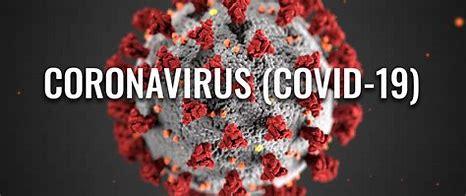Covid-19 Coronavirus Recovery Help

People who have had Covid-19 Coronavirus often never feel completely healthy again. Many of us cannot exercise as well or as often, and many have persistent fatigue of varying degrees. Our lungs don't work as well, and our muscles feel sore for no reason. Sometimes there are bodily aches and pains, perhaps as a result of kidney damage. Often these problems still exist for 3, 4 or more months after testing negative after having the virus.
We ask that the world's governments and scientists and health organizations investigate the following:
1) Heat and Humidity for clearing Covid-19 from the lungs once infected. Many cultures and individuals believe that wet saunas and / or dry saunas help the lungs. We want studies to be done which test the recovery of Covid-19 positive individuals with both heat and humidity (a wet sauna) and heat alone (a dry saune). Do recovery times improve? Is lung damage reversed? Please help those suffering from lung damage by testing these possible treatments. Also, should Covid-19 recovered people work their lungs a lot with aerobic exercises like running, fast walking, etc? Is this a good thing to do after recovery? Can strenuous aerobic exercise for 45 to 60 minutes or more help lungs recover, and possibly reverse coronavirus lung damage? People: please do NOT do this while you are infected. And please be aware that the course of an infection can wax and wane. Often people who are positive for Covid-19 will feel much better after a week or 10 days, return to their "normal" lives, and then feel even sicker than how they felt with the original onset of symptoms, for a week or two. Sometimes this "cycle" repeats again! You need your strength to recover, so it is not advised to do any strenuous exercise until you are clearly in the recovery phase, and stop sleeping for abnormally long periods of time.
2) Covid-19 affects and damages the kidneys. We need information as to how to reduce kidney damage during infection, and if possible, reverse kidney damage after infection and recovery. For example, are there certain foods which magnify kidney damage, or conversely, reduce kidney damage. Should alcohol intake be reduced or stopped altogether for infected people as well as recovering people? (This is probably a very good idea since in general alcohol reduces the body's ability to fight infection). Is tea, or only black tea (what about green and oolong tea?) harmful to the kidneys during and after a Covid-19 infection? Should tea consumption be reduced or eliminated altogether? We ask this since it is well known that an excess of black tea can also cause kidney damage. What about fluid intake? Should we drink lots and lots of water (hot or cold, does it matter?) if infected, or recovering, or should we do just the opposite, reduce water and all fluid intake. We could use real guidelines here for both infected people and recovering people (supported by a-b testing if possible, using volunteers in clinical trials).
3) We need a central database for reporting the results of all tests relating to the transmission of and recovery from Covid-19. We ask that the U.S. NIH organize this and put it into place. It should, of course, be apolitical, and report all test results which used a valid testing procedure in accordance with the scientific method.
